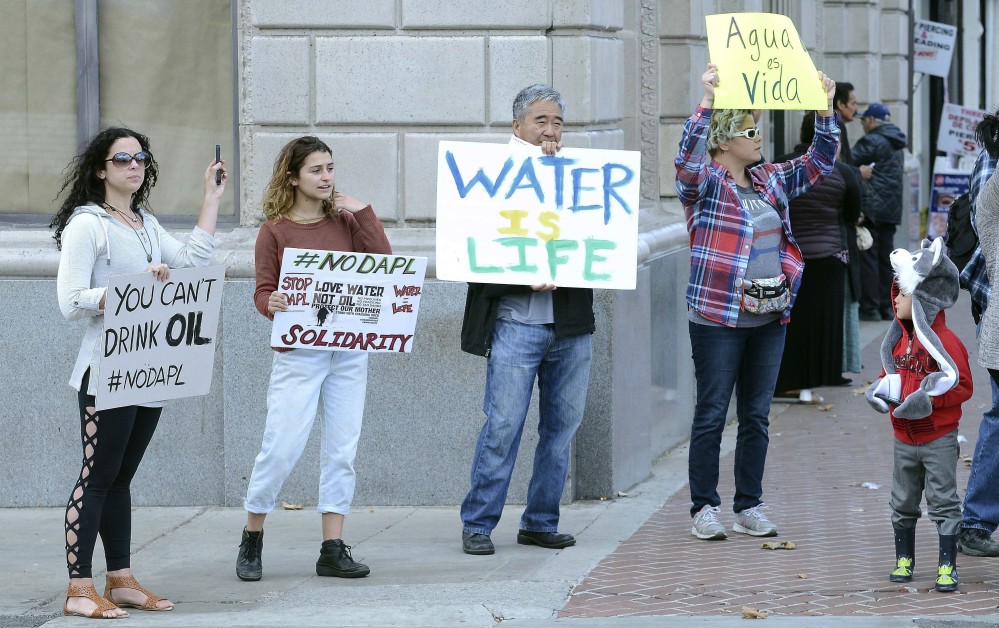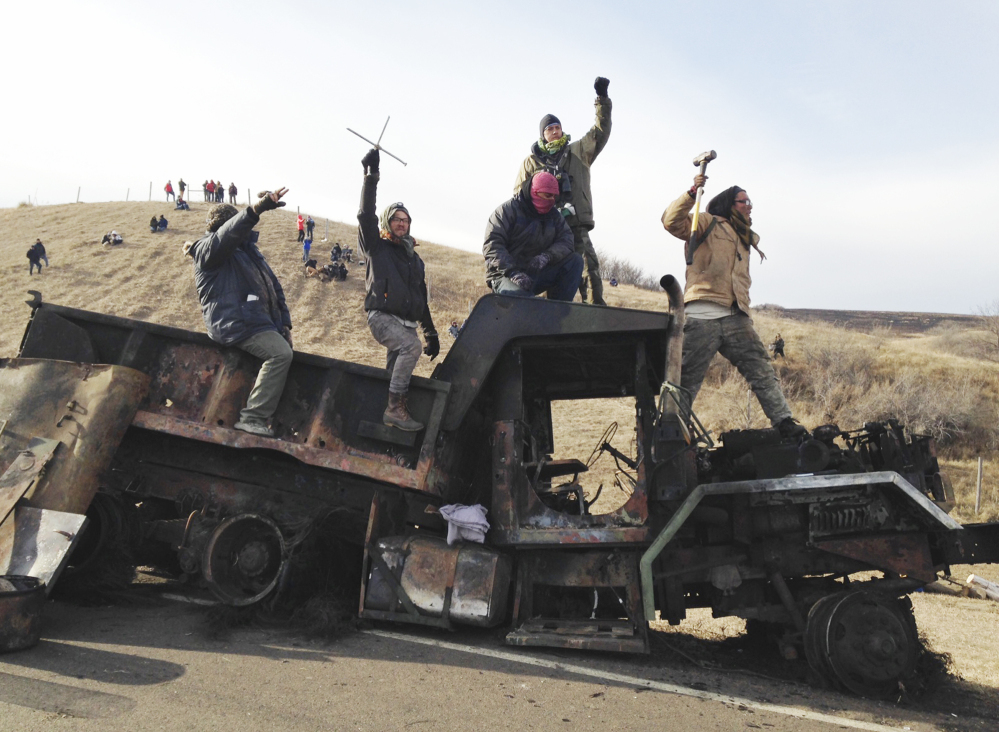BISMARCK, N.D. —The hundreds of arrests during the months of protests against the Dakota Access oil pipeline in North Dakota have created an unprecedented burden for the state’s court system, which faces huge cost overruns and doesn’t have enough judges, lawyers and clerks to handle the workload.
Police have made nearly 575 arrests since August during clashes at the protesters’ main camp along the pipeline route in southern North Dakota and at protests in and around the state capital, Bismarck, about 50 miles to the north. That’s far more arrests than these areas typically deal with and it could lead to delays in bringing cases to trial, experts say.
“We don’t have sufficient judges to get all of those cases heard in a timely fashion,” said Sally Holewa, North Dakota’s state court administrator.
The state judicial system will ask the Legislature next year for an additional $1.5 million to cover protest-related costs. That amounts to about 11/2 percent of its current two-year budget.
“This is a first,” Holewa said. “The judicial branch has never had to ask for a deficiency appropriation in its history,” which dates back more than a century.
The protest-related cases also are putting a pinch on the organization that provides public defenders in North Dakota. The Commission on Legal Counsel for Indigents might seek an additional $670,000 from the Legislature, which amounts to about 31/2 percent of its current two-year budget, according to its executive director, H. Jean Delaney.
“It is highly unusual,” Delaney said. “We did make a (similar) request once before, during the oil boom, in the 2013-15 biennium. It’s kind of interesting – it was kind of a similar situation, where court cases really grew.”
The commission has accepted more than 225 protest-related cases. They are being handled by 65 defense attorneys, and the commission is seeking seven more.
South Central District Court, where the cases are being handled, didn’t immediately have data on the total number of cases or any backlogs. However, Holewa said the sheer volume of cases raises concerns about the defendants’ right to a speedy trial and due process.
“Any time justice is unduly delayed, it causes issues,” she said.
The $3.8 billion pipeline to carry North Dakota oil to a shipping point in Illinois is nearly complete, aside from a stretch beneath a Missouri River reservoir in southern North Dakota. Pipeline developer Energy Transfer Partners says the pipeline will be safe, but the Standing Rock Sioux tribe says the project threatens the drinking water on its nearby reservation as well as some American Indian cultural sites.
Send questions/comments to the editors.




Success. Please wait for the page to reload. If the page does not reload within 5 seconds, please refresh the page.
Enter your email and password to access comments.
Hi, to comment on stories you must . This profile is in addition to your subscription and website login.
Already have a commenting profile? .
Invalid username/password.
Please check your email to confirm and complete your registration.
Only subscribers are eligible to post comments. Please subscribe or login first for digital access. Here’s why.
Use the form below to reset your password. When you've submitted your account email, we will send an email with a reset code.